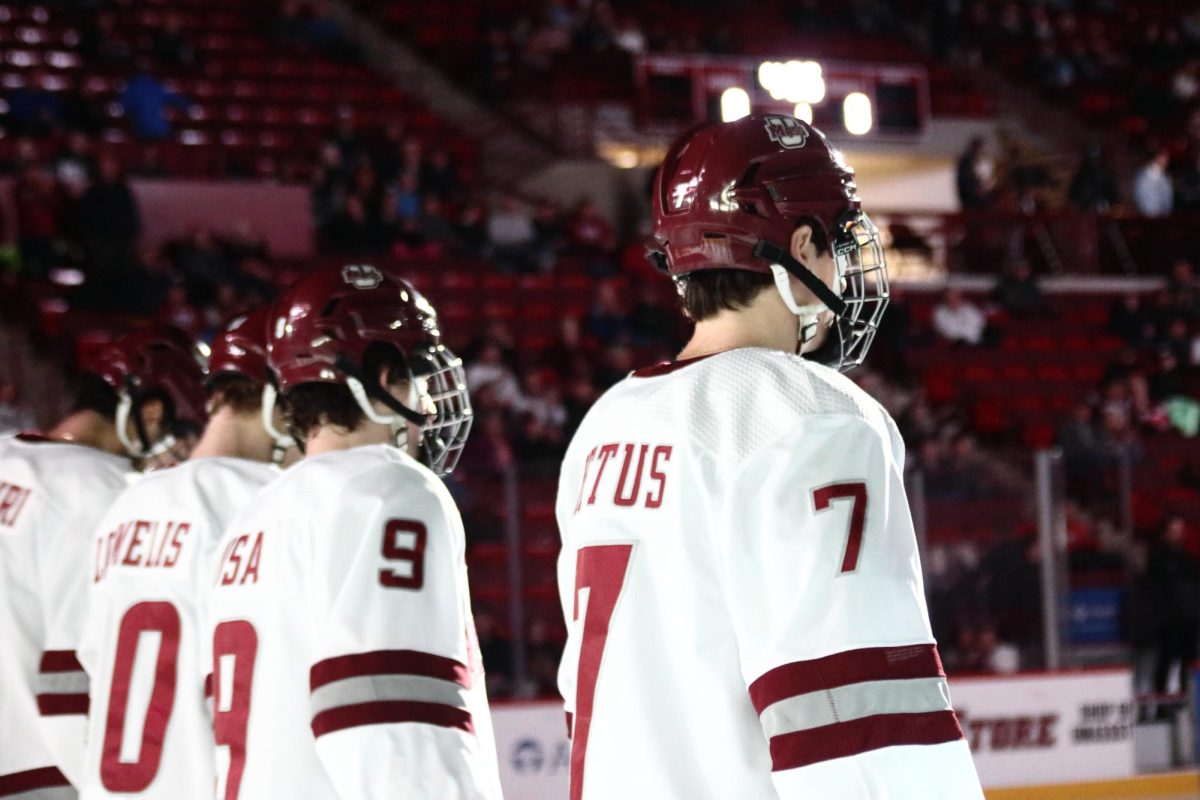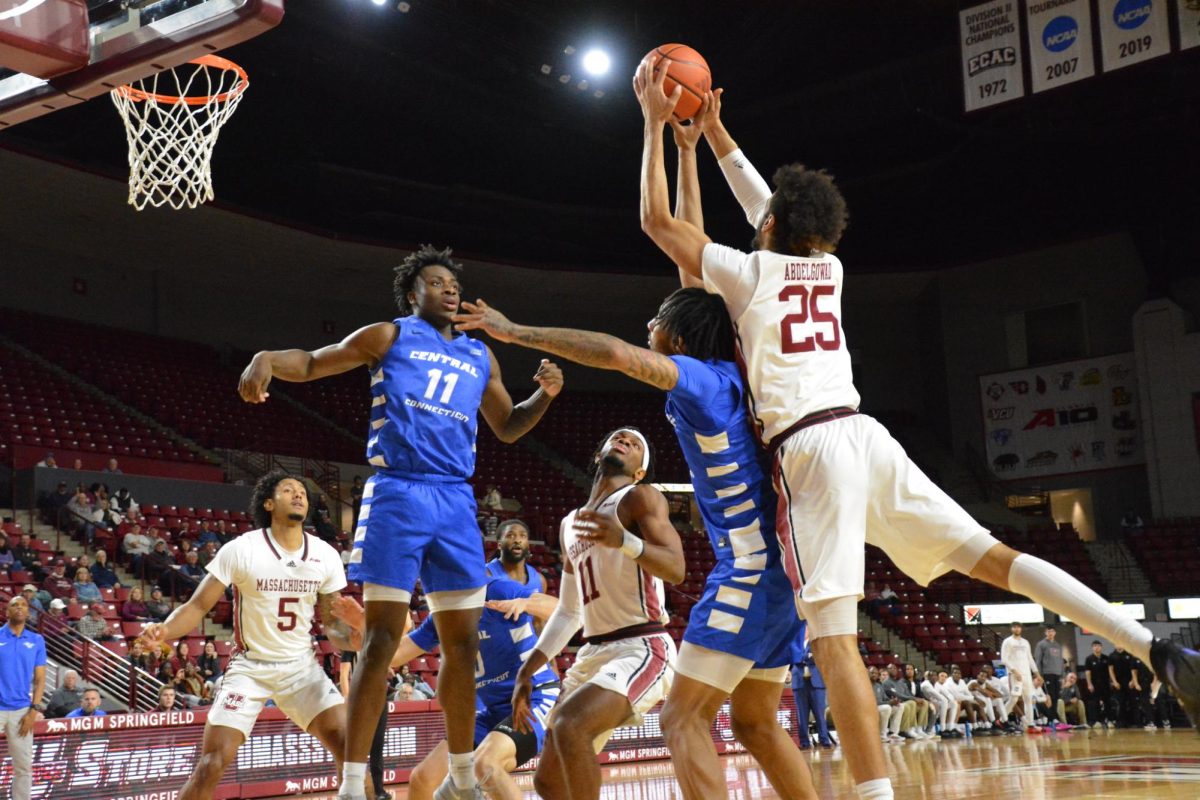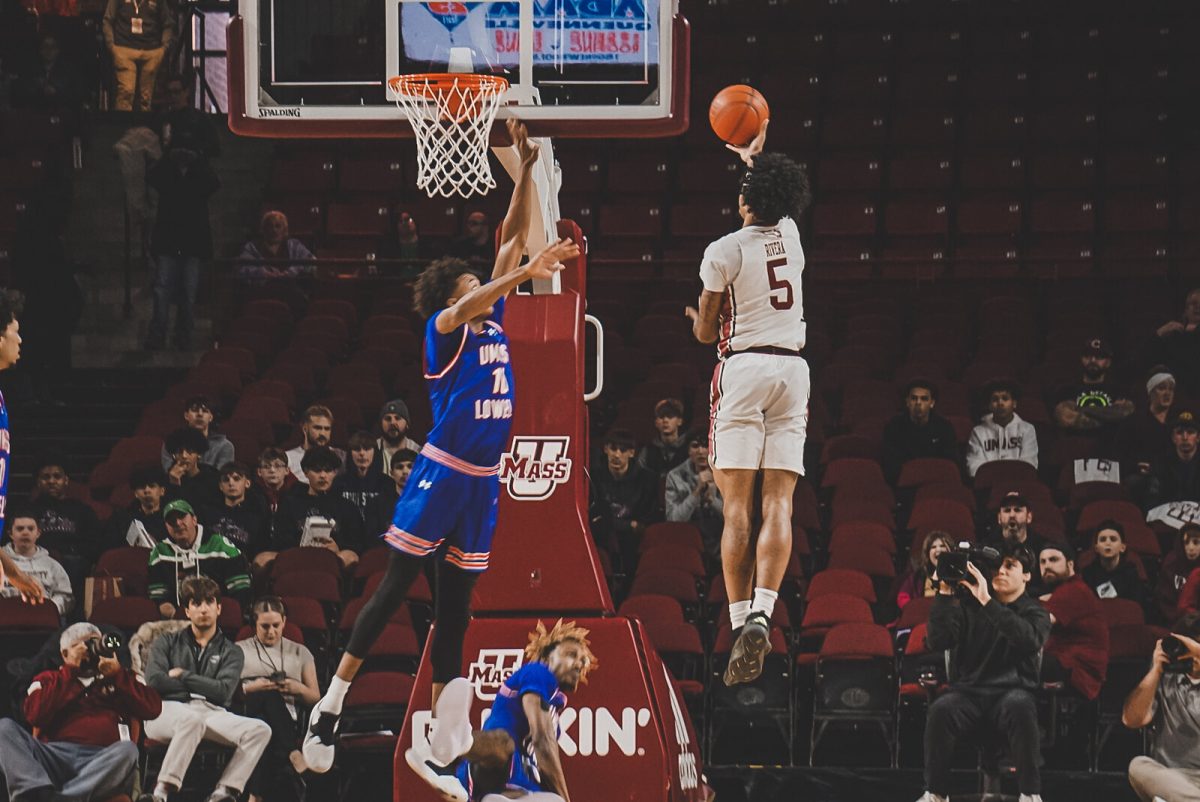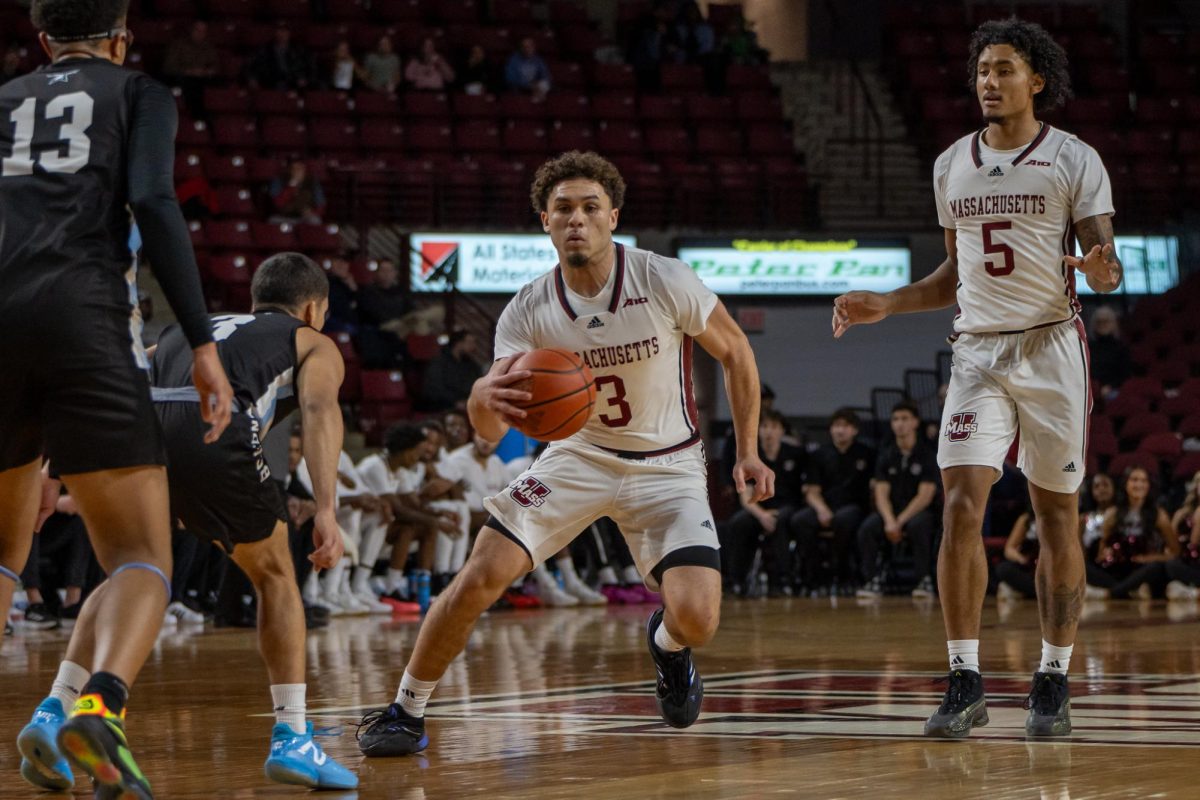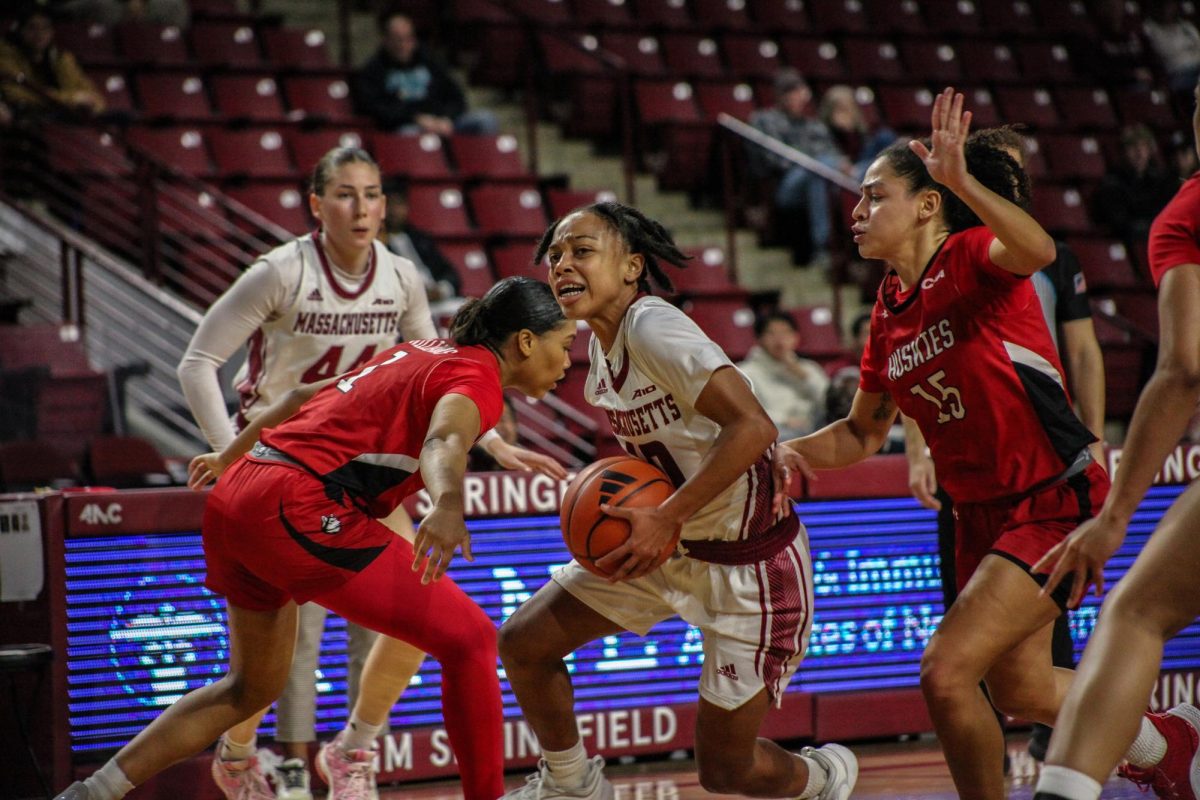The choirs at yesterday’s Choral Spectrum concert were performing a much more important service than simply singing – they were bringing music, and live concert music at that, to a college audience that rarely makes it over to the Concert Hall.
And not only did they present music, but they presented it from a widely diverse group of cultures, from Japan to America, from Africa to Germany, and in as many languages as there were selections, or so it seemed. At a University that trumpets itself as the home of social diversity, this event should not be overlooked as a major contribution to that claim.
Also diverse were the members of the choirs; they hailed Middle schools, high schools, and colleges; from graduate and undergraduate fields of study; and from fields of study that ranged from the most single-minded and dedicated music majors to the most uncertain undeclared major. The very sight of such cooperation in music by such different groups of people was heartening to see.
The ensembles did not disappoint musically, either. Technical musical expertise grew more and more impressive as it descended through age groups – Vivace was as professional, polished and easy on the ears as any of the semi-professional university groups. Their bright red shirts were a beautiful visual touch, as were the flashing lights they used during their rendition of “Hotaru Koi,” a Japanese folk song about fireflies.
The Lexington High School Madrigal Singers made their share of jaws drop, as well. Their short, light pieces were performed with admirable dexterity and balance for such a comparatively large madrigal group (18 singers all told). They proved as confident and capable on the stage as their university counterparts, performing a capella and undirected with grace and ease.
The University Madrigal singers were still there to show the younger ones how it’s done, however. They were a small group, but they were airtight and polished. They proved capable of making even yesterday’s boisterous audience fall still and silent, as they did during their performance of “Ave Verum Corpus.”
Women’s Choir added interest to their program with the use of cello, harpsichord, oboe and hand-held percussion during their selections. Their program was also well varied, pairing Bach with a contemporary Spanish composer. As usual, their blend of treble voices was immaculate and angelic, a welcome addition to the mixed-choir concert.
Chorale appeared to be the biggest draw to the concert. Several audience members shouted and waved to friends as they walked on, which, while exasperating to those better versed in concert etiquette, was a testament to the pure public-relations power of the group, with its massive numbers and openness to members from all fields of study. Though the voices of its 85 members could have proved too bulky for even the most skilled of conductors to balance well, their sound was moderate and tasteful while remaining powerful.
The Vocal Jazz Ensemble gave a modern touch to the concert, with their “crunchier” dissonant harmonies, scat singing and vocal percussion. They were, like women’s choir, a welcome variance in the mostly-traditional performances also sharing the program, and an incredibly entertaining one at that.
We’ve been waiting a long time to see a Men’s Choir really take off here at UMass, and it looks as though it finally happened at yesterday’s concert. The best thing about the Men’s choir performance was the energy and bombast they brought to old favorites like “Vive l’Amour.” They proved themselves capable of emotional range, as well, with the quiet, poignant “Tenting Tonight.” Michael Tarselli’s energetic, engaging solo during the rousing “Kalinka” was one of the highlights of the concert.
The Chamber Choir has a long and prestigious history, and as such, they have an even bigger burden of expectation to support than most of the other groups. While not in quite as polished a form as they have been in recent semesters, particularly with the selection from the Bach motet, the choir still wowed the audience with “Jubilant Song.” Julia Steinbok did a beautiful job with her solo, and during the intricate tinntinnabuli section of the piece, Chamber Choir was its old self again.
All of the excellent performances were drawn together in a powerful finale of college songs and a selection from Leonard Bernstein’s quirky Mass. While enjoyable, the finale incorporated some of the same pieces as it has in past years; it would have been nice to see the power of over two hundred singers put to the test of a new piece. But there’s always next year-and after this year, the UMass audience is looking forward to it.

